FOR the first time ever, stroke patients of the Palms Geriatric Home in Georgetown were able to benefit from hydrotherapy (exercising in a pool), thanks to a joint effort between local physiotherapists and experts from Pennsylvania.
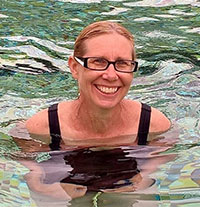
Maureen Pascal, a physiotherapist who teaches at Misericordia University in Pennsylvania, has been sharing ideas on rehabilitation for many years now with Senior Physiotherapist at the Palms, Barbara Lawrence.
Lawrence made all of the arrangements once she heard that Pascal wanted to visit Guyana to conduct a stroke camp. A five-day camp which featured intensive exercises at the Cliff Anderson Sports Hall was then successfully held.
The stroke patients were also invited to benefit from the hydrotherapy sessions that were conducted in the pool at Castellani House.
“Usually the patients are not open to anything outside a clinical setting but they have responded well to this initiative at the pool. It challenges them and they are able to understand the value of exercise. Although many are afraid of water and don’t know how to swim, they have responded positively,” Lawrence told the Pepperpot Magazine in an interview at Castellani House.
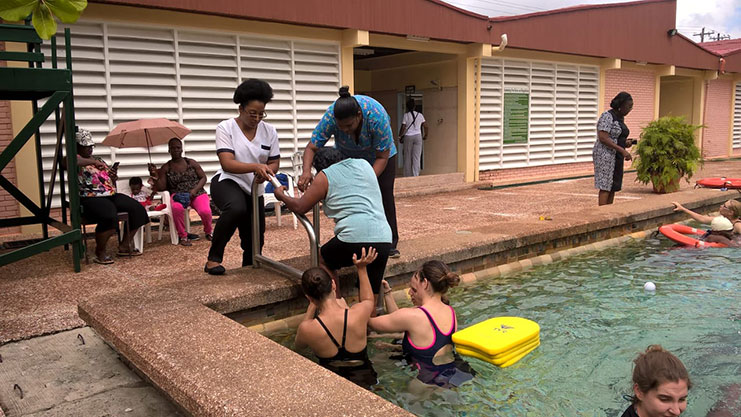
CHANGING PATTERNS
Lawrence observed how the age of persons suffering from a stroke is getting lower and how one of the main reasons has to do with lifestyle choices.
“While it used to be 70 or 80-year-olds, now there are about five persons here who are just about 30. And a lot has to do with people’s lifestyle choices. They don’t look after their health; the way they eat, lack of physical activity; nobody walks anymore. And the sad thing is that your life changes with a stroke,” she expressed.
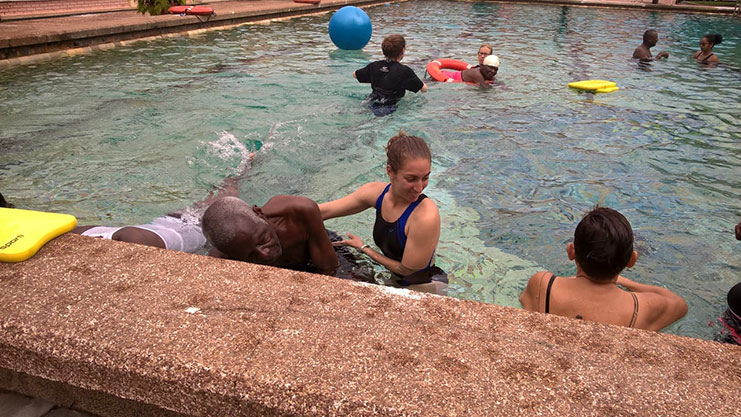
Then there’s the issue of discrimination where some employers simply do not hire someone because of the way they look. “After a stroke, you don’t lose your skills; you might lose a function. So we still have to work on the discrimination in society,” she said.

Pascal, who brought six of her students on the trip who could’ve been seen kindly helping out the patients with much care and patience, told the Pepperpot Magazine that the idea of a stoke camp came to her when she learned that some places in the US were doing high-intensity exercises for persons with stroke.
“So I asked her (Lawrence) what she thought about it and we had a group of students come last year and come up with some ideas. We talked about how we might make it work here in Guyana and this year, I brought some more students and decided to go for it.”
Commenting on what hydrotherapy does for the patient, Pascal said the exercises stimulate the nervous system and help with recovery after a stroke. “Even for more than 10 years after a stroke, people can continue to improve if they work hard. So the idea is to make them work as hard as possible.”
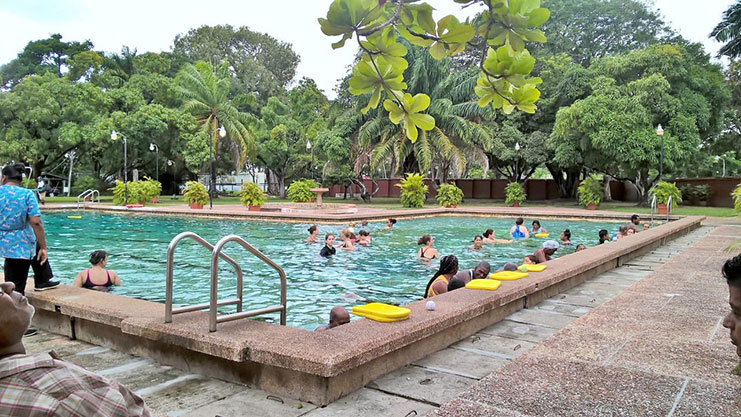
Palms, said working with the patients in this way helps to enable them to become more independent. “We break things down for them; simple things like putting on and taking off clothes. We adjust techniques and show them how to do it. Here with the hydrotherapy it is good because they are allowed to function more with the water. The water causes muscle stimulation so it’s easier for them and the buoyancy allows free movement.”
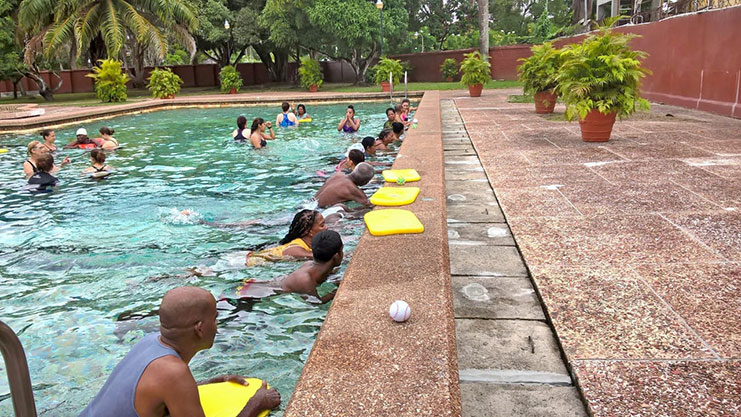
One of the patients, 37-year-old Leon Christian, was injured about two years ago and thereafter walked with the help of a walker. “But all of a sudden my feet got stiff and the doctor told me I needed to do some physiotherapy,” he recalled.
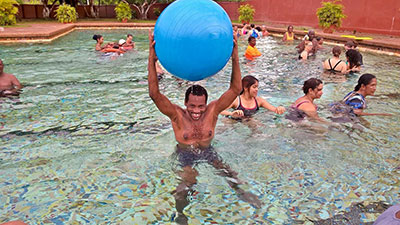
Christian, who struggles to walk at the moment, said being in the water made his feet move again. He was able to participate in all of the activities in the water with little help.












